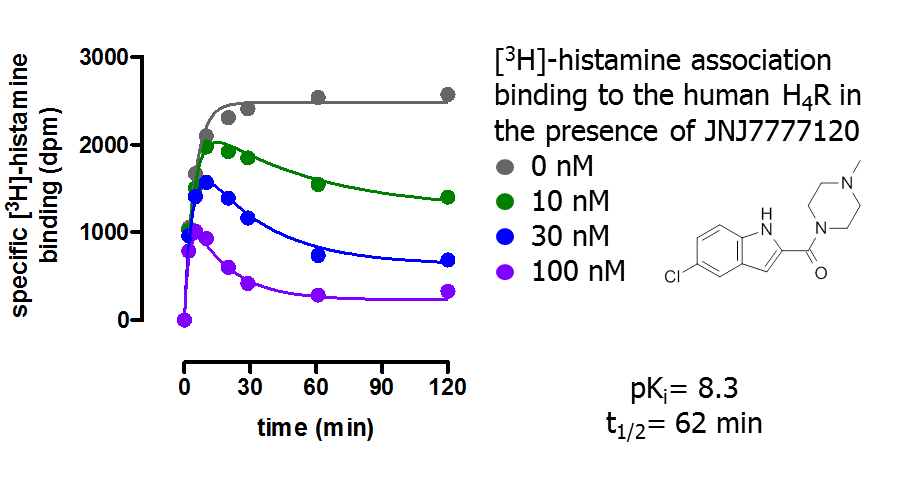The understanding of the biological activity of drugs continually improves as emerging paradigms in basic science shed new light on this difficult and multi-faceted topic. One of the paradigms that has gained much interest in the past years is the study of the residence time of the ligand-protein complex. This important parameter can be measured as the rate at which the complex dissociates (expressed as koff or dissociative half-life) to the free ligand and its target protein. The dissociative half-life has been connected to improved clinical efficacy in a large number of marketed drugs.
Griffin Discoveries offers the profiling of ligand-GPCR interactions by measurement of the koff and the related residence time t1/2 to support the selection of candidate compounds for further development.
Below we exemplify the determination of the tt1/2 for the potent and selective H4R antagonist JNJ7777120 by looking at the association of [3H]histamine in the presence of increasing concentrations of the antagonist.

Relevant publications

